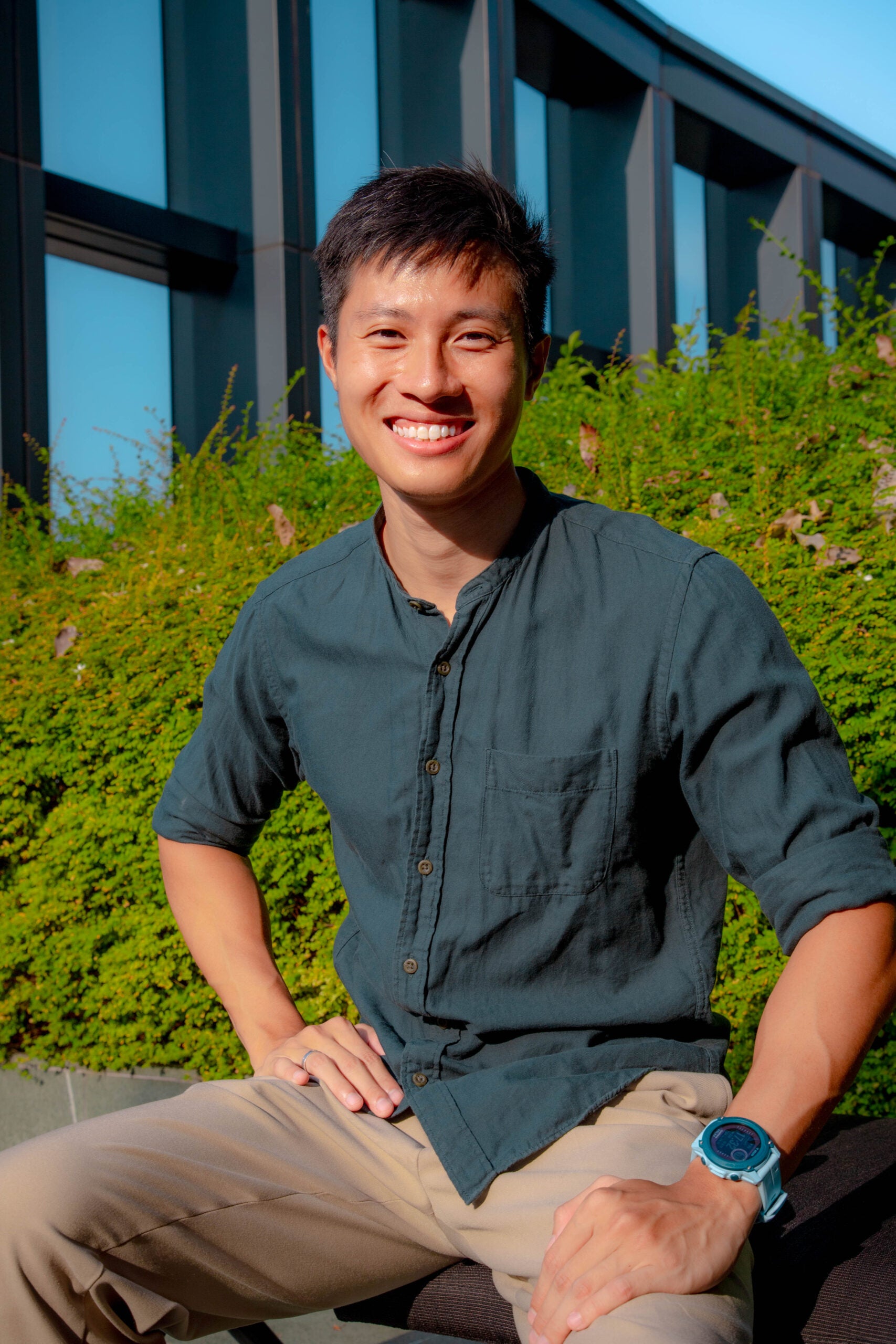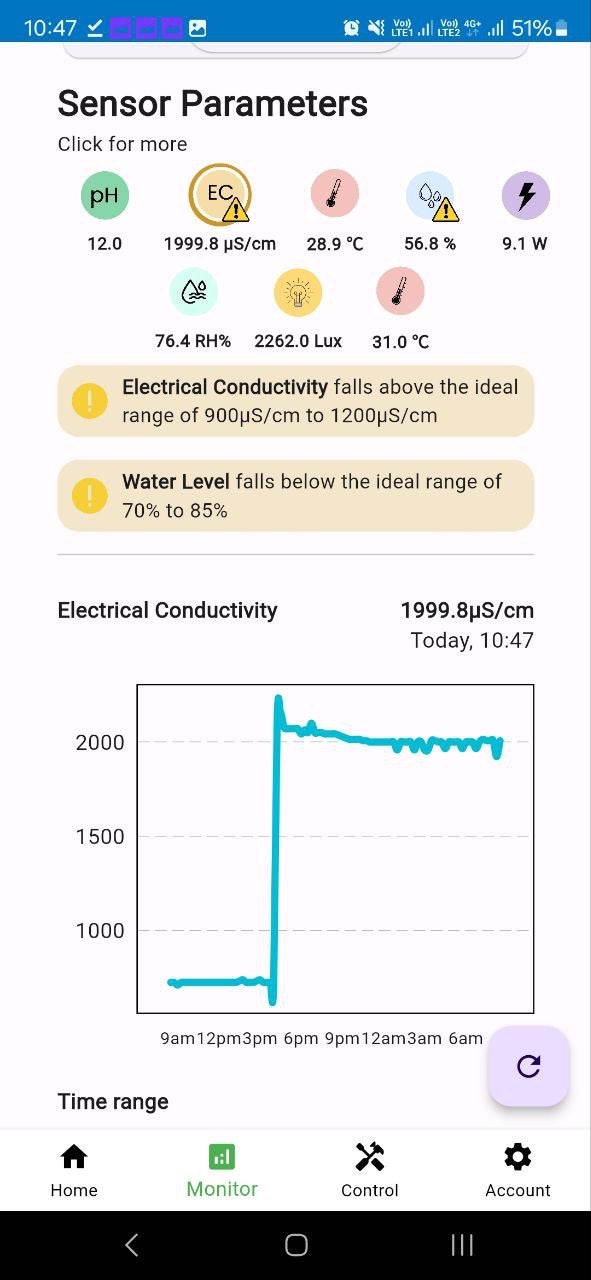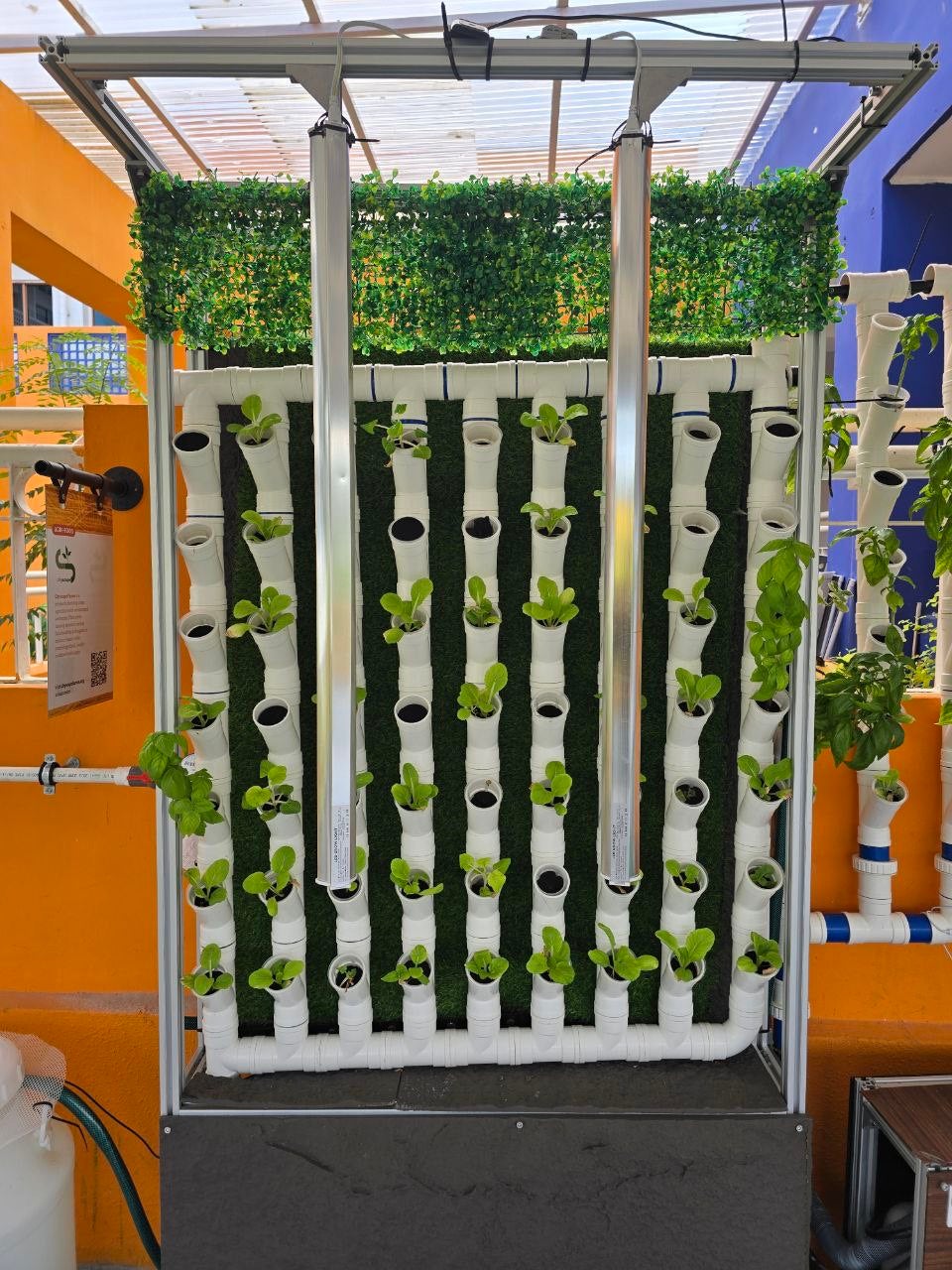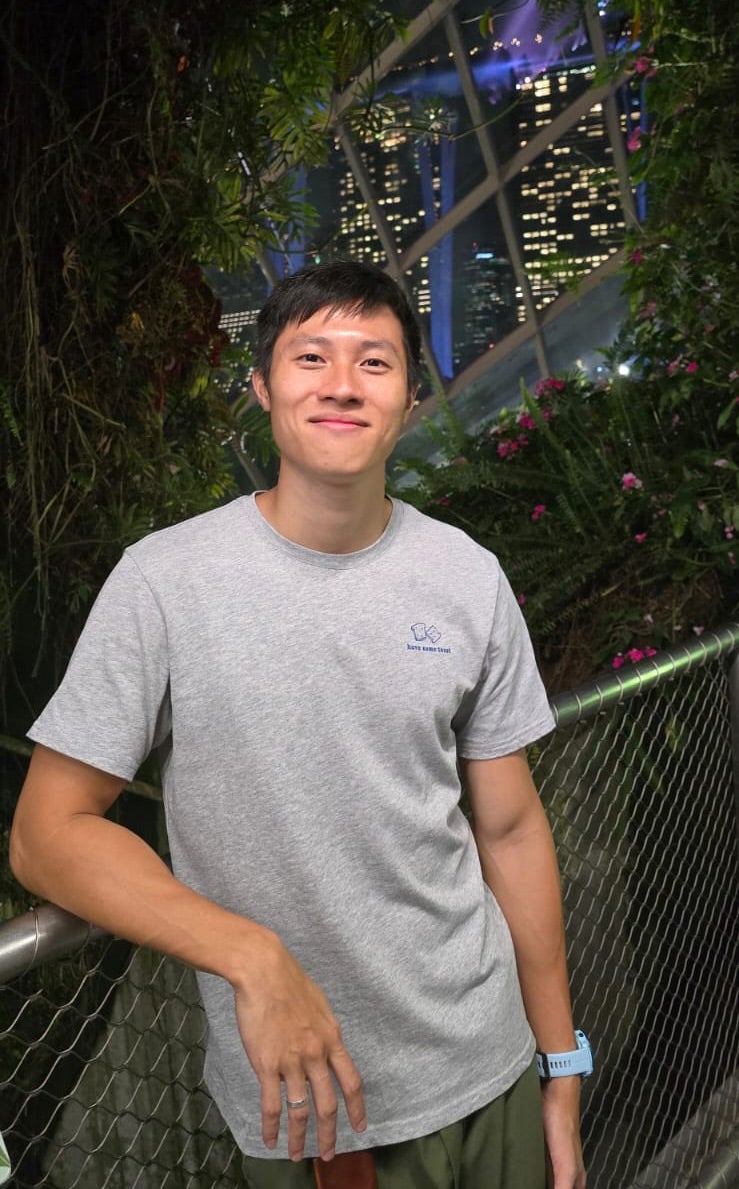Smart solutions take root: Powering vertical urban farms
August 5, 2025

A new generation of young entrepreneurs is stepping up to address one of the most urgent challenges of our time: climate change. What sets this wave of changemakers apart is not just their passion for sustainability, but the unexpected paths they come from.

Meet Ho Hol Yin, who graduated with a double degree in Mathematics and Computer Science in 2022. By day, Hol Yin is a Senior Software Engineer at PSA Singapore working on next generation terminal planning solutions.
However, his interest in applying technology to real-world issues led him to an unexpected venture - in agritechnology. Together with alumni from NUS’ College of Design and Engineering and Faculty of Arts and Social Sciences student Chew Chi Ying, Hol Yin established Cityscape Farms, which sets out to tackle two major challenges: urban food insecurity and the inefficient use of space and resources in traditional farming methods.

He says, “The idea of helping people grow food in a smarter, more sustainable way made sense to me.”
Drawing on his technical background in mathematical logic, analytics and systems thinking, Hol Yin is helping to build a new model for urban agriculture - one that uses technology and analytics to grow fresh produce more efficiently in city spaces. He manages software development and built the application (app) that users interact with. The app handles real-time data, and allows users to monitor and adjust temperature, water flow and lighting remotely.

“Many agritech tools are either too technical or not integrated properly,” Hol Yin says. “We wanted to build something smarter and approachable. My focus was making sure the app was clean, simple and still powerful enough to support automation and alerts, even for users who aren’t technology-savvy.”

The smart vertical farming system he built is more modular, easier to use and every feature is accessible through the app. It enables food production in places like schools, hotel lobbies and small urban spaces that do not traditionally support farming. By helping these places grow fresh produce onsite using smart, automated systems, Cityscape Farms reduces reliance on food imports, thereby contributing to the national 30 by 30 goal for food resilience.
In the future, the team plans to build more intelligence into the system.

He says, “The goal is to help users diagnose what’s going on with their plants - whether they’re healthy, under stress or lacking nutrients - just by looking at trends in the data. We're working toward features that can detect early warning signs, recommend corrective actions based on plant behaviour and give users more confidence in managing their crops, even without prior farming experience.” This will help make farming more automated, predictive and accessible.
Read more at How NUS start-ups are driving sustainable change through green innovation

